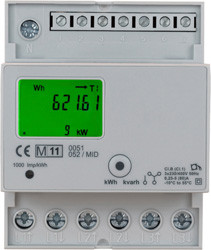Building on smart meter success stories
Smart grids use communications technology to acquire information and make decisions to sustainably and efficiently achieve a reliable energy supply. Smart meters record energy consumption throughout the day and facilitate two-way communication between the meter and the central system. These systems are currently in place in areas across Europe, but widespread uptake is hampered by technical barriers and regulatory obstacles. EU-funded scientists working on the project 'Supporting the development and deployment of advanced metering infrastructures in Europe' (METER-ON)(opens in new window) combined the successes of 23 smart metering research projects, 21 in the EU and 2 in Brazil, to speed optimisation and market uptake. A very important strength and determining factor in the success of the project itself was the extensive involvement of the main smart metering stakeholders in Europe. The consortium was led by the European Distribution System Operators' Association (EDSO) for Smart Grids, allowing comprehensive data collection and knowledge sharing. DSOs are a critical link in the deployment chain. They are facing new challenges, called on to play a role in well-functioning energy markets as neutral facilitators in addition to operating an electricity distribution system. The METER-ON data collection exercised drew on the experience of 27 leading DSOs and associations throughout the EU, representing more than 70 % of its electricity metering points. University-linked foundations, applied research institutes, technological institutions and communication experts were important partners as well. METER-ON conducted an analysis of each of the 23 projects to determine technological solutions, European Commission compliance, regulatory framework, market model, smart grid solutions and economic information. Results were compared to identify important patterns of success and how certain factors impact final outcomes. By the end of its two-year duration, METER-ON has managed to enhance understanding of the current status of smart metering and the technical and regulatory obstacles faced. Results have been widely distributed through the project website as well as newsletters, articles, conferences and workshops. Recommendations for decision makers and stakeholders regarding the best way forward should accelerate development of optimised smart metering technologies and infrastructures. In turn, this will facilitate widespread smart metering deployment, enhancing the efficiency of smart grid operation and potentially helping consumers cut their energy bills.



